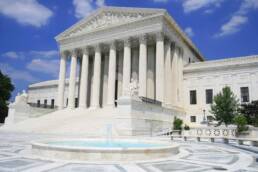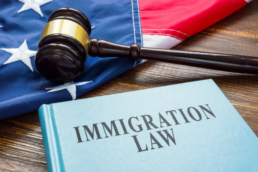The United States in one of 30 countries around the world that offers birthright citizenship to any person born on U.S. soil. Birth in the United States is the most straightforward way one can acquire U.S. citizenship, but it is not the only way a person is born a U.S. citizen.
In addition to birth in the U.S., Congress has enacted laws which allow persons born outside the U.S. to a U.S. citizen parent(s) may acquire or derive U.S. citizenship at birth. Requirements for derivative U.S. citizenship is governed by the Immigration and Nationality Act (“INA”)—if the requirements are met, the child automatically derives citizenship upon his or her birth abroad.
Determining Whether You are a U.S. Citizen
There are several categories of derivative U.S. citizenship available to children born abroad, each with different requirements.
Child Born in Wedlock
- Child of Two U.S. Citizen Parents;
- Child of U.S. Citizen Parent and U.S. National; or
- Child of U.S. Citizen Parent and Foreign National Parent.
Child Born Out of Wedlock
- Child of U.S. Citizen Father; or
- Child of U.S. Citizen Mother.
Establishing Your U.S. Citizenship Claim
U.S. parents of children born abroad should immediately notify the U.S. Embassy or consulate in the country of birth to apply for a Consular Report of Birth Abroad (“CRBA”). If the consulate determines the child has satisfied the requirements of one of the above categories and acquired U.S. citizenship, the consular officer will prepare the CRBA. This option is generally available to children under the age of 18, so the sooner the application process begins, the better. The CRBA is recognized in the U.S. as proof of acquisition of U.S. citizenship and it is acceptable evidence of citizenship for obtaining a passport, entering school, and many other purposes.
Passport
It is recommended that parents apply for the child’s U.S. passport (Form D-11) at the same time they apply for the CRBA, since the CRBA cannot be used for travel. By filing the applications at the same time, additional documentation will not be necessary. Both the CRBA and U.S. Passport are proof of citizenship.
Social Security Card
A Social Security Card is another document to prove identity. Parents must complete Form SS-5 and provide documentation verifying age, citizenship, and identity. U.S. passports and CRBAs are acceptable documentation to submit. As the application is for a child, at least one U.S. parent must show identification as well. Anyone over the age of 12 must be present for an in-person interview to obtain a Social Security Number (“SSN”). This interview can take place within the U.S., or abroad at a U.S. Embassy or consulate.
Here at Berardi, we regularly handle a variety of citizenship cases. If you have questions about claiming citizenship – or becoming a U.S. citizen – please contact our office to set up consultation with one of our attorneys.
Ready to have Berardi on your side?
Whether you’re a business looking to hire or a professional hoping to relocate, immigration law can be complicated. But you don’t have to do it alone. Put our experience to work for you.



